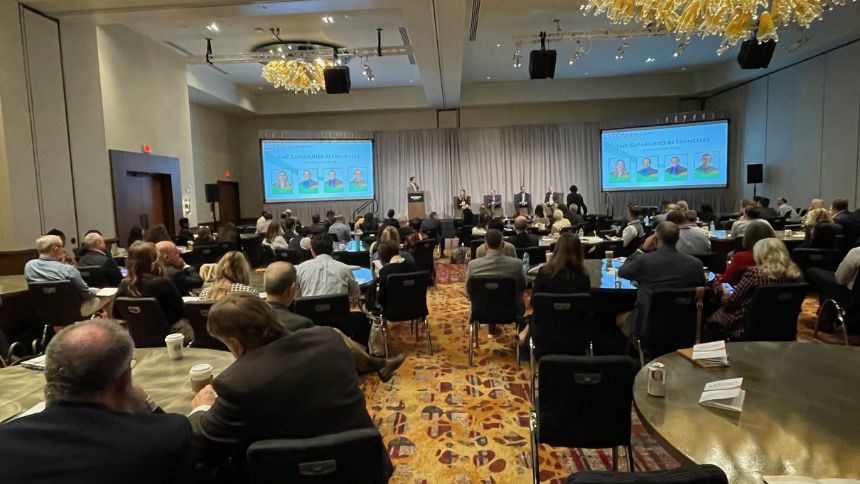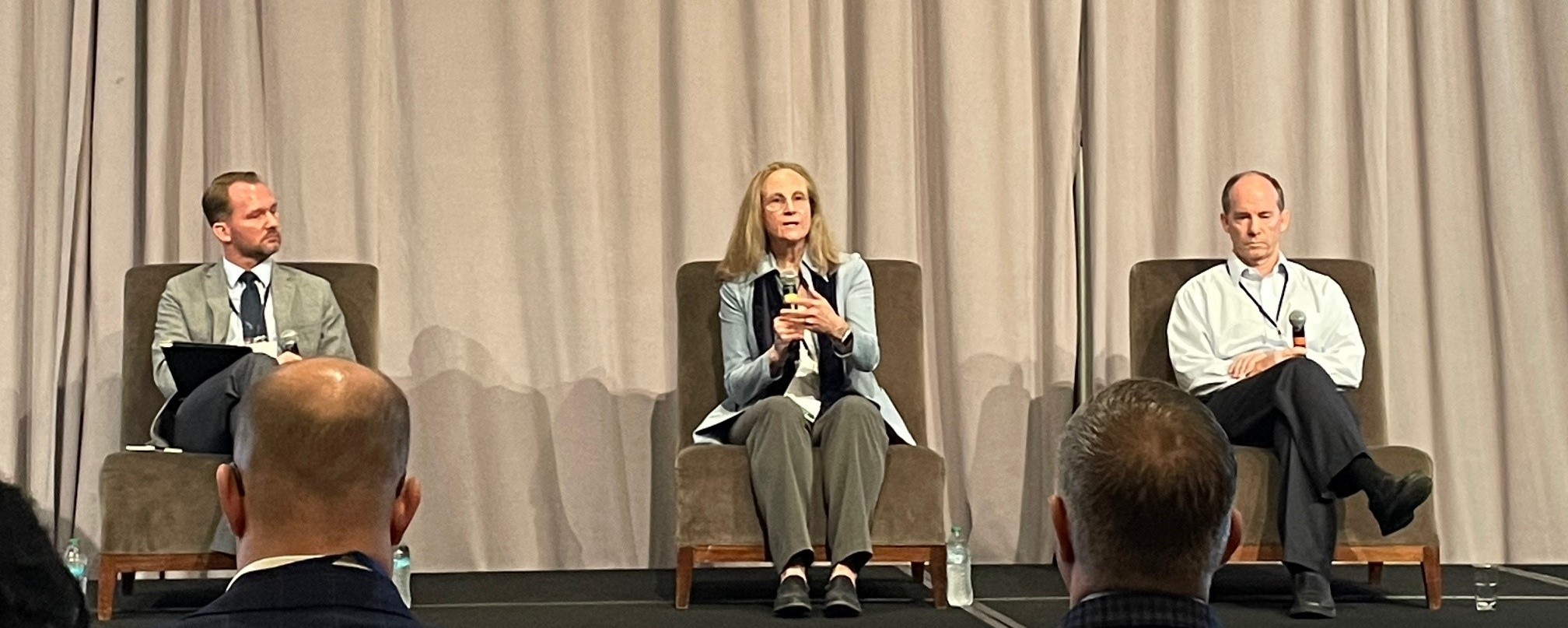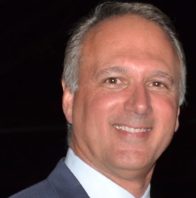
LSTCON has a record attendance
Growth of the life science/biotech community showcased from all sectors of the Volunteer State.
The largest crowd in the history of Life Science Tennessee’s (LST) annual conference showed up on Tuesday for the all-day event at The Westin Hotel in Nashville.
Over roughly 10 hours, starting with breakfast and ending with a reception, about 200 people heard everything from a primer about how two major research entities make technology commercialization decisions to how two entrepreneurs moved their early stage life science companies to the Volunteer State and thrived.
Vanderbilt and St. Jude Explain Their Respective Commercialization Strategies
With $400 million in impact during his 13 years as head of Center for Technology Transfer and Commercialization at Vanderbilt University, Alan Bentley has grown the operation to about 35 employees – 10 on the licensing team and five working to create new ventures.
 “We serve a lot of baskets,” he explained. They include generating revenues that can be plowed back into the research enterprise, supporting economic development, and operating most importantly as a faculty service organization.
“We serve a lot of baskets,” he explained. They include generating revenues that can be plowed back into the research enterprise, supporting economic development, and operating most importantly as a faculty service organization.
Lisa Jordan, Senior Vice President of Technology Commercialization at St. Jude Children’s Research Hospital, explained that her top priority is “not focused on the money but the mission – addressing pediatric catastrophic diseases.” She added that potential licensees that are interested in bringing a technology forward for adults would not be a priority, again citing St. Jude’s mission to address diseases of youth.
Two Knoxvillians Were Featured on Panels
Eric Mayer, President and Chief Executive Officer (CEO) of New Day Diagnostics, and Graham Taylor, President of Helix Biotech, were part of two different panels. One of Chemistry, Manufacturing and Controls included Taylor, while Mayer was part of a breakout session titled “Trends in Life Science Investments.”
- Taylor talked about three factors that should be considered by a life science start-up considering where to launch. One was what Tennessee officials always talk about – the state’s low taxes and quality of life. The other two might be less obvious. “We ship product globally,” he said and can do so within a day or two from Knoxville. The other was the fact that there are no hurricanes that come to Tennessee, although the remnants of Hurricane Helene brushed the tip of Northeast Tennessee, and there are no wildfires in the Volunteer State like those in California and other parts of the West.
- Mayer talked about how the Valley of Death is getting wider or bigger as angels are getting more involved in pre-seed rounds while venture capital is moving more toward growth stage companies. He also noted that “family offices are writing bigger checks,” and suggested a reverse ranking of investor prospects. Instead of pitching to those most likely to invest first, pitch to those least likely. Sounds counterintuitive, but Mayer said the feedback will prove valuable as entrepreneurs prepare to pitch to higher potential investors going forward.
Two Titans Share Their Thoughts
Both Sam Lynch, a former Chair of the LST Board of Directors, and Jeff Bedard, Founder and CEO of Crown Laboratories in Johnson City, both came to the state in 2000.

Lynch shared that two weeks before he was moving BioMimetic Therapeutics to the Nashville area, he was told by the lead investor something that could have changed his life forever. “If you stay in Connecticut or New York, we will fund you. If you move to Nashville, thank you very much. Good luck,” he said.
An investment of $10 million was on the line, but he relocated anyway. BioMimetic Therapeutics was acquired by Wright Medical Group Inc. In March of 2013.
Today, Lynch has a new start-up named Lynch Regenerative Medicine LLC.
Bedard moved the company best known for its Blue Lizard Sunscreen from California in 2000 after finding a mothballed manufacturing facility in Johnson City.

Characterizing the move as a reverse Beverly Hillbillies action, he and three others launched the manufacturing product previously made in Australia with $100,000. Today, Crown Laboratories generates $450 million in revenue and will grow to $1 billion after it acquires Revance Therapeutics in a $924 million merger agreement announced on August 12 and expected to close by the end of the year.
Both offered advice to entrepreneurs in the room.
Bedard offered three thoughts: (1) don’t ever give up; (2) network constantly; and (3) put yourself in the right place at the right time.
Lynch had two recommendations. One was simple: “You know your product. Better than anyone else. You have to be able to tell your story.” The second, reiterating the point Mayer made in an earlier panel discussion, was, “Listen to the feedback from investors.”
Like what you've read?
Forward to a friend!

